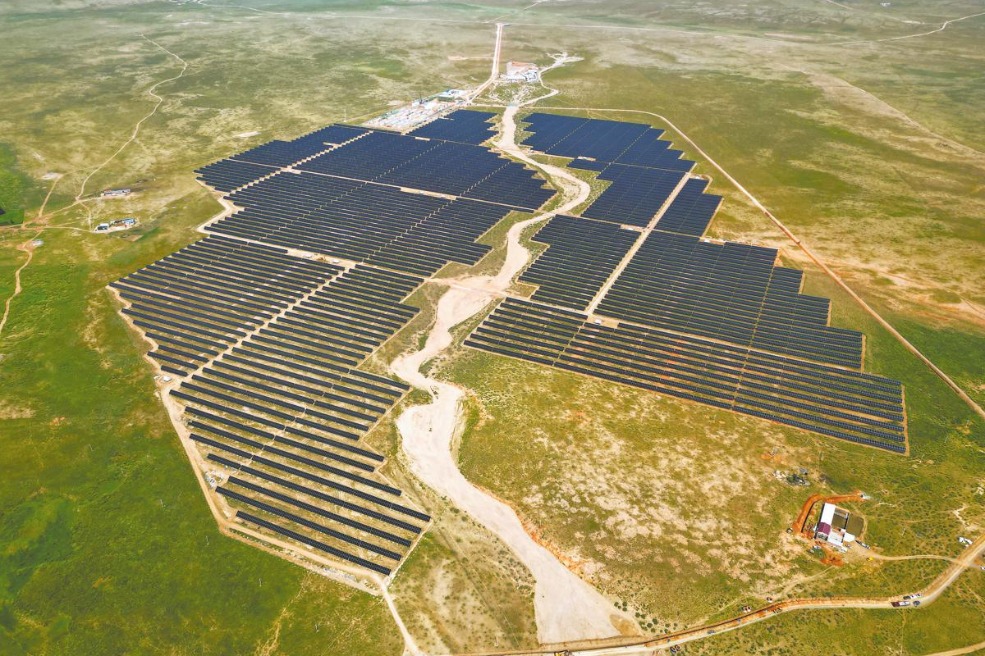Global experts laud China's focus on science and tech in 15th Five-Year Plan

Global experts have praised China's 15th Five-Year Plan (2026-30) for its focus on science and technology development, emphasizing the need for global ethics standards and data sharing to advance scientific and technological progress.
"China is putting together its next Five-Year Plan. That plan is really good because it focuses on science and technology, the future drivers of progress for nations," said Mohammad Obaidat, a professor at Monmouth University in the United States and the University of Jordan.
Obaidat, a life fellow of the Institute of Electrical and Electronics Engineers, highlighted China's rapid transformation into an industrial country in less than 20 years through science and technology. He expressed that it is "impressive" to see China now leading the world in fields like electric vehicles, nanotechnology, stem cell technology, and quantum computing.
"Technology can benefit human beings, and China is now selling technologies at really affordable costs to poor countries," he added.
However, Obaidat noted that technology is "a double-edged sword", emphasizing the need to encourage positive uses and penalize misuse.
"China has proposed guidelines and standards and is leading efforts in this domain," he said. "We need to continue negotiating and talking to everyone globally, so that such standards can be followed and agreed upon if needed, allowing every country in the world to abide by them."
The remarks were made at the 2025 World Science and Technology Development Forum, held recently in Beijing during the China Association for Science and Technology's first international month.
Manzoor Hussain Soomro from Pakistan, founding president of the Economic Cooperation Organization Science Foundation and vice-president of the Belt and Road International Science Education Consortium, echoed Obaidat's views.
Soomro said China's 15th Five-Year Plan is expected to provide new avenues for development and investment in science. He added that all countries should ensure artificial intelligence is used for positive purposes, with China and the US leading the efforts.
"China has emerged very fast as a global leader," Soomro said. "Some of the global leaders earlier on were hegemonic in nature, but China has changed this paradigm and has supported open access to technology — not just holding them. This increases the future expectation of the developing world, particularly the Global South."
"Together with governance, we need to enhance the capacity of users and responsibilities of users," he said, attributing some of the incorrect output of ChatGPT partly to the irresponsible uploading of wrong content.
Xu Xun, a professor at the University of Auckland in New Zealand, pointed out the challenge in developing large language models — such as China's DeepSeek, which has made a significant impact worldwide — lies in data collection.
Xu said both good and bad data are important, as leveraging both can reflect practical scenarios, improve generalization, and reduce biases that might arise from relying solely on high-quality datasets.
However, Xu also noted that many industrial enterprises are reluctant to share data due to concerns over intellectual property protection and competitive advantage, creating significant challenges for model training.
He called for global cooperation in artificial intelligence, emphasizing that "science has no boundaries".
Gu Tong contributed to this story.
- China pushes forward legislative process of draft ecological environment code
- Swans flock to Yellow River wetland in Sanmenxia to spend winter
- Expressway expands regional linkage
- Solar shelters shrubs to stunt Inner Mongolia's shifting sands
- Formalism eased for grassroots authorities
- Zoos keep animals warm to protect against winter chill




































